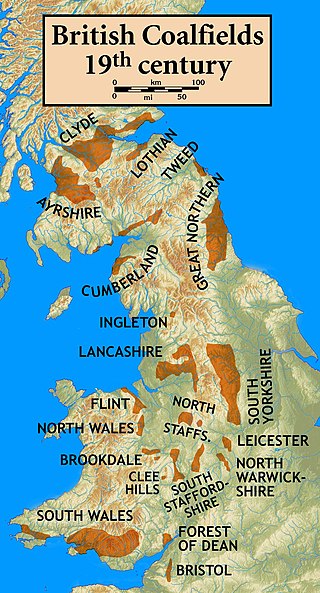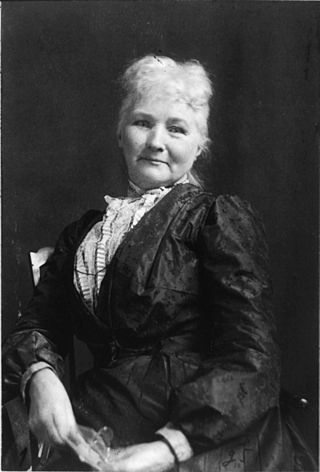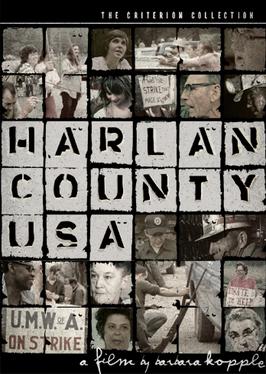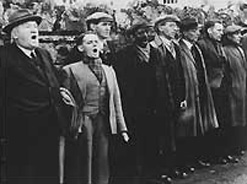Related Research Articles

Pitmatic – originally 'pitmatical' – is a group of traditional Northern English dialects spoken in rural areas of the Great Northern Coalfield in England.

Billy Elliot is a 2000 British coming-of-age comedy-drama film directed by Stephen Daldry and written by Lee Hall. Set in County Durham in North East England during the 1984–1985 miners' strike, the film is about a working-class boy who has a passion for ballet. His father objects, based on negative stereotypes of male ballet dancers. The film stars Jamie Bell as 11-year-old Billy, Gary Lewis as his father, Jamie Draven as Billy's older brother, and Julie Walters as his ballet teacher.

The 1984–1985 United Kingdom miners' strike was a major industrial action within the British coal industry in an attempt to prevent closures of pits that the government deemed "uneconomic" in the coal industry, which had been nationalised in 1947. It was led by Arthur Scargill of the National Union of Mineworkers (NUM) against the National Coal Board (NCB), a government agency. Opposition to the strike was led by the Conservative government of Prime Minister Margaret Thatcher, who wanted to reduce the power of the trade unions.

Mary G. Harris Jones, known as Mother Jones from 1897 onward, was an Irish-born American labor organizer, former schoolteacher, and dressmaker who became a prominent union organizer, community organizer, and activist. She helped coordinate major strikes, secure bans on child labor, and co-founded the Labor unionist trade union, the Industrial Workers of the World (IWW).

Diamanda Galás is an American musician, singer-songwriter, and visual artist. She has campaigned for AIDS education and the rights of the infected.

County Durham, officially simply Durham (/ˈdʌrəm/), is a ceremonial county in North East England. The county borders Northumberland and Tyne and Wear to the north, the North Sea to the east, North Yorkshire to the south, and Cumbria to the west. The largest settlement is Darlington.

Spennymoor is a town and civil parish in County Durham, England. It is south of the River Wear and is 7 mi (11 km) south of Durham. The civil parish includes the villages of Kirk Merrington, Middlestone Moor, Byers Green and Tudhoe. In 2011 the parish had a population of 19,816.

Harlan County USA is a 1976 American documentary film covering the "Brookside Strike", a 1973 effort of 180 coal miners and their wives against the Duke Power Company-owned Eastover Coal Company's Brookside Mine and Prep Plant in Harlan County, southeast Kentucky. It won the Academy Award for Best Documentary at the 49th Academy Awards.

Bowburn is a village in County Durham, England. It is situated about 3 miles (4.8 km) to the south-east of Durham, on the A177, between Coxhoe to the south-east, and High Shincliffe to the north-west.
Murton is a village in County Durham, England, eight miles (13 km) east of the city of Durham and six miles (9.7 km) south of Sunderland. It had a population of 4,534, which rose to 7,676 at the 2011 Census.

Esh Winning is a village, and location of a former colliery, in County Durham, England. It is situated in the Deerness Valley 5 miles (8 km) to the west of Durham.

The Durham Miners' Gala is a large annual gathering and labour festival held on the second Saturday in July in the city of Durham, England. It is associated with the coal mining heritage of the Durham Coalfield, which stretched throughout the traditional County of Durham. It is also locally called "The Big Meeting" or "Durham Big Meeting". In the context of the Durham Miners' Gala, "gala" is usually pronounced rather than the more common pronunciation.

How Green Was My Valley is a 1941 American drama film directed by John Ford, adapted by Philip Dunne from the 1939 novel of the same title by Richard Llewellyn. It stars Walter Pidgeon, Maureen O'Hara, Anna Lee, Donald Crisp, and a young Roddy McDowall.

The Racecourse is an open area on the River Wear in Durham, England of 11.6 hectares total that has been used as a sports ground since at least 1733. It forms part of Durham University's sports facilities as well as hosting local sports clubs. The Racecourse cricket ground, which has hosted first class matches, has been used since at least 1843, and is the home ground of Durham University's cricket team. The Racecourse also contains squash, tennis and fives courts, rugby, hockey and football pitches, and boathouses.
Waiuta is the location of a historic mining town on the West Coast of the South Island of New Zealand. It is now abandoned and considered a ghost town. Located 58 km north of Greymouth and 21 km south of Reefton in Ikamatua, New Zealand, it was the site of a gold mine until 1951, when the collapse of the mine made it uneconomic. A number of buildings remain and there are still residents in what remains of the town. Nowadays Waiuta has become a tourist attraction, with few of the original buildings still intact that include the former police station, three cottages and the old barber shop.

Lesbians and Gays Support the Miners (LGSM) was an alliance of lesbians and gay men who supported the National Union of Mineworkers during the year-long strike of 1984–1985.

The Silent Village is a 1943 British propaganda short film in the form of a drama documentary, made by the Crown Film Unit and directed by Humphrey Jennings. The film was named one of the top 5 documentaries of 1943 by the National Board of Review. It was inspired by the Lidice massacre in Czech Republic in June 1942.
Lesbians Against Pit Closures (LAPC) were an alliance of lesbian women who came together to support the National Union of Mineworkers and various mining communities during the UK miners' strike of 1984–1985. They were formed after a schism in the Lesbians and Gays Support the Miners (LGSM) movement, in November 1984. Members of the organisation were involved in picket line protests against the delivery of coal to the factories by strikebreakers.

Dennis Skinner: Nature of the Beast is a 2017 British documentary film directed and written by Daniel Draper, and produced by Christie Allanson and Daniel Draper. The film is about the life, times and work of democratic socialist, trade unionist and Labour Party MP Dennis Skinner.

Dying for Gold is a 2018 South African trilingual documentary film written and directed by duo Richard Pakleppa and Catherine Meyburgh. The film is produced under the production banner Breathe Films and the film was predominantly shot in Lesotho. The plot of the film depicts the untold real story about the mining in South Africa especially portrays the dying of gold miners due to silicosis and tuberculosis in South Africa, Mozambique, Lesotho and Malawi. The film had its theatrical release on 16 October 2018 and received positive reviews from the critics. The film was also screened in Mozambique and Botswana. It was also screened at the Johannesburg Film Festival on 15 November 2018.
References
- 1 2 3 "The Big Meeting". Film Hub North. Retrieved 13 July 2020.
- ↑ Wright, Stuart (14 January 2020). "Interview: Director Daniel Draper on documentary 'The Big Meeting'". Nerdly. Retrieved 13 July 2020.
- ↑ "Screenings | The Big Meeting". Shut Out The Lights. Retrieved 13 July 2020.
- ↑ Bradshaw, Peter (4 September 2019). "The Big Meeting review – heartfelt tribute to miners' solidarity". The Guardian. Retrieved 13 July 2020.
- ↑ Waywell, Chris (3 September 2019). "The Big Meeting". Time Out. Retrieved 13 July 2020.
- ↑ Carrier, Dan (5 September 2019). "A rich seam of solidarity in The Big Meeting". Camden New Journal. Retrieved 13 July 2020.
- ↑ Beasley, Tom (5 September 2019). ""It's About People Coming Together" – The Big Meeting (Film Review)". Vulture Hound. Retrieved 13 July 2020.
- ↑ Parkinson, David. "The Big Meeting – review". RadioTimes. Retrieved 13 July 2020.